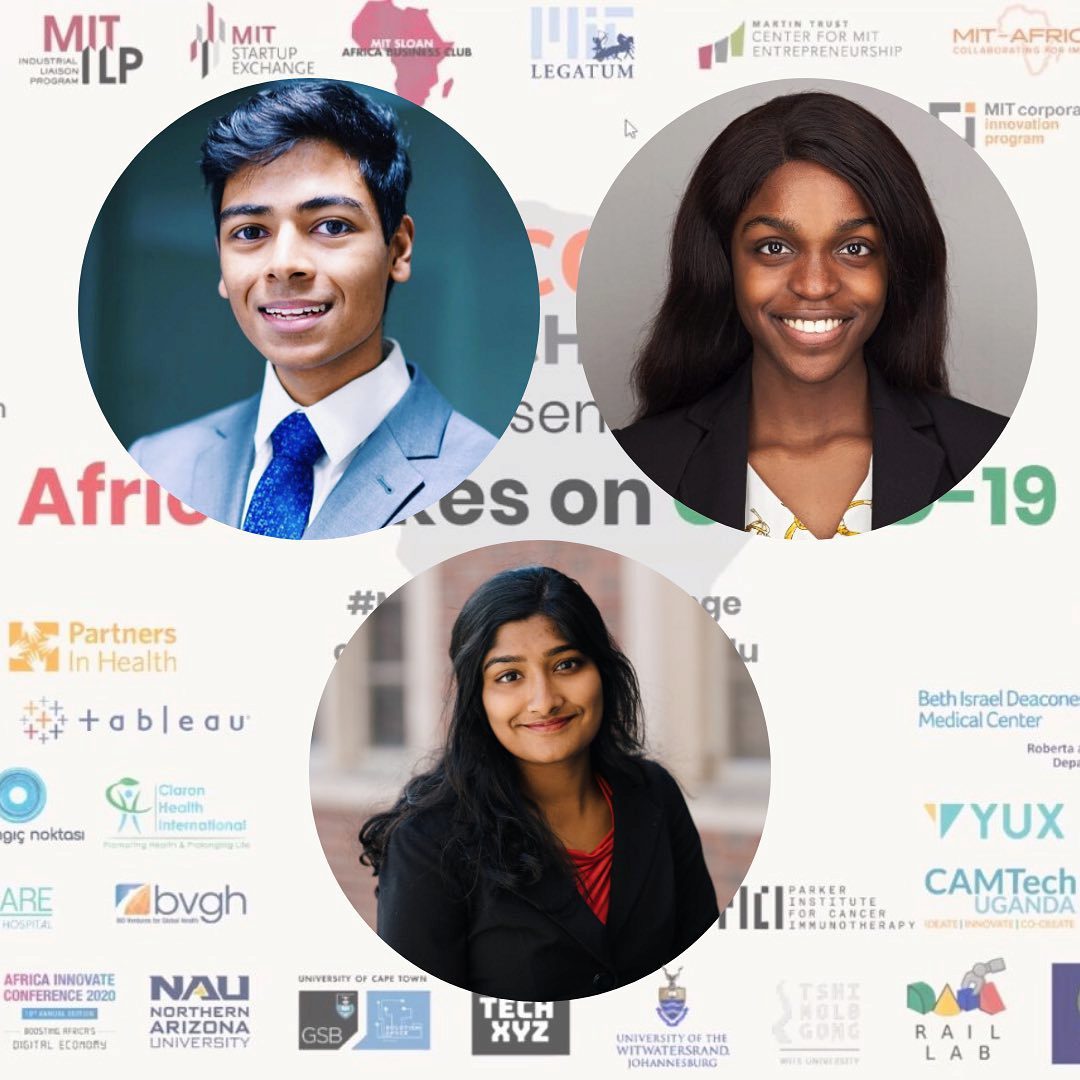By Mariana Velasco

Huntsman students Samidha Sane ’22, Nikhil Gupta ’22 and Ayina Anyachebelu ’22, along with Eugenia Lee (University of Chicago) and Logan Herman (Carnegie Mellon), participated in the MIT Covid-19 Hackathon to produce a project that would solve challenges related to the pandemic in Africa, and won as one of the only undergraduate teams in the competition in a pool of professionals and graduate students across the globe. I sat down with them virtually to hear from their experience and how the Huntsman Program education enabled them to succeed.
Asking them about the challenges that they faced Nikhil recalls that “a lot of people came in with projects that they have been developing for years and it was intimidating in a way to know that we were undergraduate students and we had 48 hours to come up with an idea and present it to a panel of judges over Zoom”.
“I think that the hardest part is that it was all virtual and none of us had ever done anything like this before, but we had great access to mentors and experts from all over the world,” shared Samidha. As Huntsman students, the international aspect of the competition could not be left out from the discussion since participants and mentors came from all over the world.
When I asked them how these past two years as Huntsman students shaped their experience solving the challenge, they expressed how they were able to put into practice what they had learned, which gave them a comparative advantage.
“All of those core business courses, such as those from the marketing and management departments, teach you a systematic way of thinking; we were trying to come up with a product that was different from what was already out there and that is what marketing and management is all about–how to differentiate your idea and bring it to market.” shared Samidha.
“WH 201: Business Communication for Impact was also very helpful. We were among the few teams that finished the presentation on time and were able to clearly communicate our idea to the judges in such a short period of time” recalled Nikhil.
Yina commented on the global approach that they took as they evaluated different plausible solutions. They looked at what other countries across the region were doing with sustainability and the challenges that those countries were facing and incorporated that regional outlook in their final proposal to partner with a local organization in Nigeria. Their project, called RIPPLE: Recycled Innovative Personal Protective Low-cost Equipment, seeks to repurpose the supply chains of recycling plants and organizations in the ground in Nigeria in order to mass-produce sustainable, inexpensive PPE from plastic waste products, all the while employing low-income citizens and cleaning up the environment.
As we reached the end of our conversation, they expressed how excited they were to work on the implementation of their idea in the near future. As former study abroad students impacted personally by the pandemic, they all shared their enthusiasm and commitment as Huntsman students to contribute with their efforts in spite of the unprecedented circumstances.



